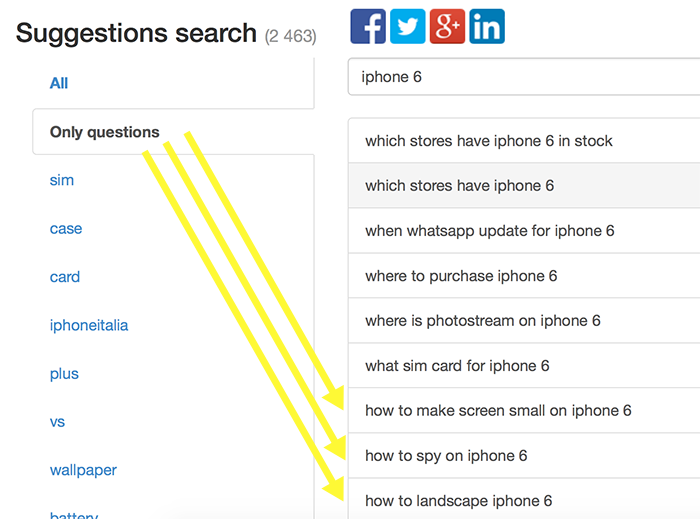Three Free Keyword Research Tools
Previously on our blog, we discussed the importance of keywords for SEO. Keywords are among the most important factors that contribute to how well a website ranks on search engine results pages. The occurrence, frequency, and context of the words and phrases that people use when searching for specific information, products, or services online will indicate a website’s relevance to a search engine. Once a search term is submitted to a search engine, the engine will use a proprietary algorithm to process it and return a list of relevant websites -- the more relevant a website is, the higher it will appear in the results. But simply stuffing your content with keywords won’t improve your ranking on search engines. Algorithms have become highly sophisticated and prioritize the depth and value of the content, not just the words and phrases contained within it. As well, the keywords and phrases that writers do include need to be both contextually relevant and highly targeted. With the release of Hummingbird in particular, Google’s algorithms are learning to understand your content beyond its keywords -- it wants to understand “things (concepts) instead of strings (the exact sequence of words you type).” With this understanding, many content marketing experts are moving beyond traditional keyword research -- feeling that optimizing for specific keywords or phrases is too limiting. Instead, they recommend that content creators write more naturally and expand their research to include what’s trending on social media. They believe that this:
- Lets you brainstorm more interesting content;
- Improves your chances to do better on social media (since you are basing your content on what the social media crowd is currently interested in); and,
- Lets you target both search and social media making your traffic sources more varied.
However, this is not to discount the value of keyword tools. They can be a great resource for exploring topics, brainstorming, and developing content ideas. Understanding what people are searching for will help you understand how to answer their needs and add value to their experience. Here, then, are three free tools to help you with your content research.
Google Keyword Planner
By far the most useful keyword research tool out there, Google’s Keyword Planner is a free AdWords tool that’s like a workshop for building new campaigns or expanding existing ones. You can search for a keyword, see how a list of related keywords might perform, and even create a new keyword list by multiplying several lists of keywords together. The tool has a full suite of features that will help you track changes in your keyword’s popularity, filter out low-volume searches, and create alternative keyword combinations in seconds. The tool was created specifically for Google’s AdWords users, so there are a lot of features that won’t necessarily apply for SEO-focused keyword research, but these three are invaluable:
- Search for new keywords using a phrase, website or category;
- Get search volume data and trends; and,
- Multiply keyword lists to get new keywords.
And in addition to the basic search features, the tool also allows you to target your search to specific locations and languages.
SEO Chat
SEO Chat’s bulk search suggest keyword tool is a great starting point for any brainstorming session. Starting with a base word that you enter, the tool will show you which search terms users enter on Google, Bing, YouTube, and Amazon. This can be particularly helpful because it allows you to easily compare similar search terms with different intentions -- for example, a user will typically use Amazon for purchases, YouTube for entertainment, and Google and Bing for a range of reasons. 
SerpStat
SerpStat is a similar tool, but has the added option of filtering search suggestions to only questions. As we discussed previously, users are moving away from strings of keywords and more towards conversational search -- including asking search engines specific questions, such as “Where can I buy an iPhone in Toronto?” 
Wrapping Up
Keyword research is one of the most valuable steps you can take in your SEO efforts and will yield a high rate of return on the time invested. By researching the demand for certain keywords in your market, you can optimize your website to rank higher on search engine result pages -- but also, you can learn more about your customer’s needs and habits so you can provide more value to them through your content. SEO isn’t just about getting more visitors to your website, but about getting the right visitors. With proper keyword research, you can better predict changes in demand, respond to changing market conditions, and tailor the products, services, and content you produce to what your prospective customers are actively seeking.







